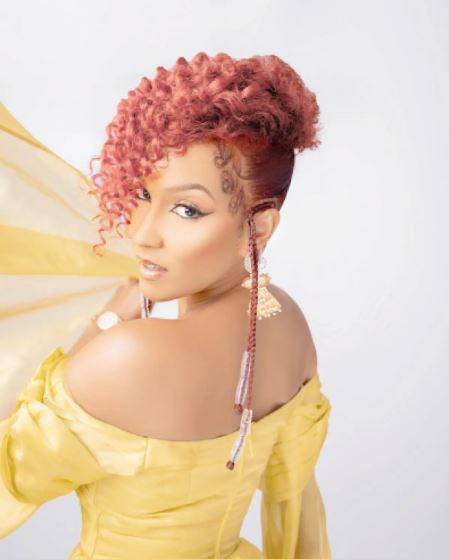Lisa Viola, the fast-rising songstress has opened up on her life.
In this interview, she shares her journey into the Nigerian entertainment industry with Ademola Olonilua.
How did you discover your passion for music?
We always had music in the house growing up. It was never a discovery; more of just an extension of who I was, whether I was singing to it, dancing to it, or creating it. My whole family loves music and my brother is also a music artist.
At what stage in your life did you decide to make it a full-time career?
I did performing arts since the age of five and started working professionally by 14. I’ve worked as a host in children’s shows, cabaret dancer, backup dancer, cover band singer, model, actor, everything. After high school, I knew it was what I wanted to do but to do music full time was hard. I did cover bands for two years and that was good money but lost its spark. I then ventured out in different workplaces and kept writing music in my spare time.
In 2013, I put out my first single as an independent artiste but I couldn’t make a full time living. So, I juggled contracting jobs and did the music part time until I got signed.
How would you describe your music?
Thoughtful lyrics, clean melodies supported by spiritual harmonies. But it’s not genre specific… it’s a real mix. Like me.
What would you say sets you apart from other rising stars in the Nigerian entertainment industry?
Nigerians are some of the most talented musicians and artistes in the world. I would never even try to compare myself with anyone here. But as an artiste, whether I’m here or in Australia, I always come with an international approach. In my art, whether music or visual, I’m always merging worlds. I’ve been lucky to live in Africa, Europe and Australia so my ear and what I like is very unique. I’ve learned that that uniqueness is what sets me apart from all artistes.
You are an Angolan-born, Australian-raised lady. Does your background have any influence on your music?
Absolutely. Being mixed race and bi-cultural expose you to more than the average person. This in turn changed the way you look at the world. And the way you create.
Tell us about your family and educational background
I’m the eldest child and my mother’s only daughter. We immigrated to Australia when I was five. I grew up with two brothers and we were always outdoors. Riding bikes, at the park, at the beach, playing sports. We were super active kids and our parents made sure we had everything we needed. I lost my mother in December just before Christmas. She was a feisty Angolan woman who raised us to be fiercely proud of our African heritage. She wanted me to get married and have a family more than anything. My stepfather is Swiss and so our house was basically the United Nations especially at birthday celebrations as our parents had friends from Mali, Kenya, Serbia, UK, Portugal you name it. My real father was Portuguese. He and my brothers and sister were victims of a rebel attack in Angola in 2000. This being the main reason my mother always wanted to leave Angola. Angola was in civil war until 2001.
I finished high school and was already working as a performer and was a bit of an entrepreneur so I didn’t take on the university. I like to think I got an ‘on the job’ university degree as I tackled running my own business and then going on to work alongside friends and family who were running their own businesses. I learnt a lot. In saying that I always knew I’d complete a degree one day, I’d love to study Theology.
At what point did you decide to move to Nigeria?
I was offered an opportunity in 2020 during COVID.
My friends and family expressed their concern as it was in the middle of a pandemic and also the security concerns they’d heard about on the news but something inside me told me to come. I’ve travelled a lot (around 23 countries all up) so I love an adventure. I was only supposed to be coming for three months to get an album done. I’ve been here since.
What were some of the culture shocks you experienced when you moved to Nigeria?
Everything is very different here compared to how I grew up in Australia. Everything from dating through to politics. But because I was raised by an African mother, there are a lot of things that don’t necessarily come as a shock but can be frustrating for a foreigner. Like why does the invite say 7pm and no one is there until 10pm?
For a while in your career, you were an independent artiste. How challenging was it for you, especially as a young lady?
The hardest thing about being independent is having to work to pay my bills as well as do music. It was exhausting. Sometimes, I worked in entertainment and other times I worked as a contractor in different businesses but that balancing act was always really hard.




No comments yet
Be the first to share your thoughts!